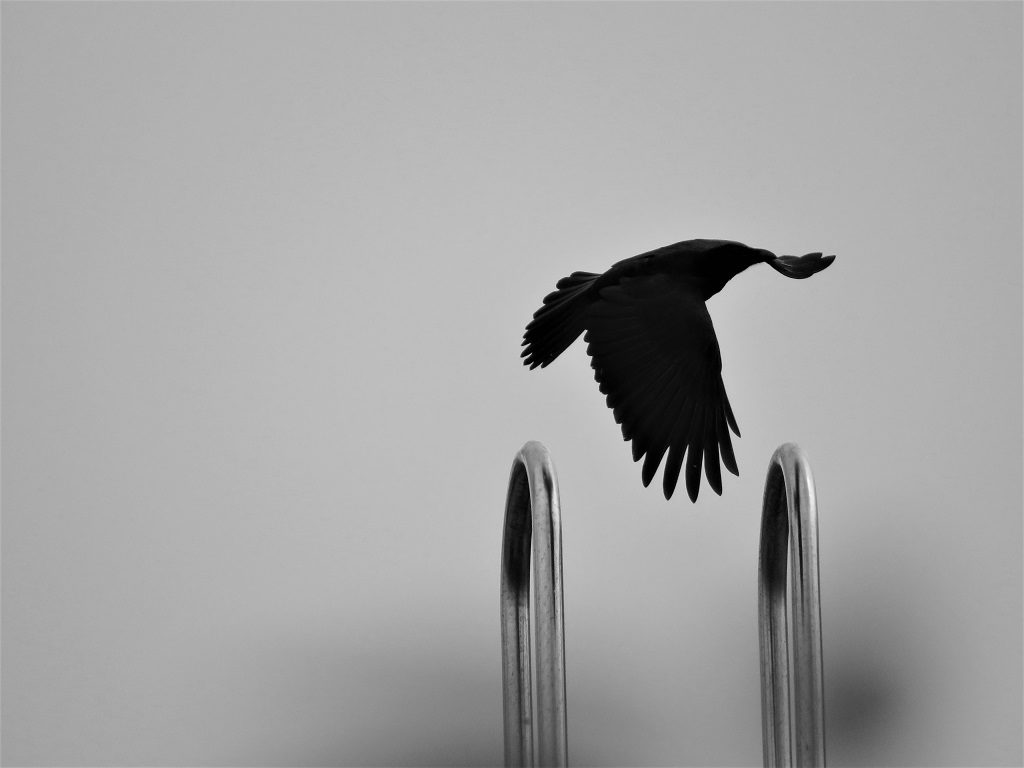You Only Live Once
“You only live once,” as that phrase is typically used today, is the perfect practical synopsis of existentialism. The motto’s modern meaning encapsulates the fundamentals of existentialism’s philosophical, or quasi-philosophical, perspective, without all the high-minded intellectual fidgeting that was once needed to persuade people that their lives were essentially meaningless — in other words, that their lives were without essence.
“You only live once” is an unintentionally ironic expression of the implicit wish that one not even have to live once. For it is used to justify the meaningless, to give oneself license to play and dabble at life, rather than accept the grand challenge of belief, purpose, and what our day trivializes as “commitment.” In other words, while the motto is intended to indicate the speaker’s courage and unconcern for outcomes, what it more likely indicates is a paralyzing fear of life in the fullest sense, and an infinite timidity at the thought of potential consequences. Better to deny the relevance or compulsion of all consequences, the YOLO dreamer tells himself, than to make a serious commitment and then have to struggle through the pain or stress of fulfilling it, living up to it, realizing it before the judgment of an unknown future. Erase the future, delete it from the picture altogether, and all problems cease, which is to say all life, as humanly experienced, ceases.
Notice that “You only live once” is the absolute negation or reversal of Nietzsche’s great psychological challenge of eternal recurrence, the ultimate test of life — meaning of one’s own life and its defining choices and thoughts.
The greatest weight.— What if some day or night a demon were to steal after you into your loneliest loneliness and say to you: “This life as you now live it and have lived it, you will have to live once more and innumerable times more; and there will be nothing new in it, but every pain and every joy and every thought and sigh and everything unutterably small or great in your life will have to return to you, all in the same succession and sequence — even this spider and this moonlight between the trees, and even this moment and I myself. The eternal hourglass of existence is turned upside down again and again, and you with it, speck of dust!”
Would you not throw yourself down and gnash your teeth and curse the demon who spoke thus? Or have you once experienced a tremendous moment when you would have answered him: “You are a god and never have I heard anything more divine.” If this thought gained possession of you, it would change you as you are or perhaps crush you. The question in each and every thing, “Do you desire this once more and innumerable times more?” would lie upon your actions as the greatest weight. Or how well disposed would you have to become to yourself and to life to crave nothing more fervently than this ultimate eternal confirmation and seal?
Nietzsche, The Gay Science (Walter Kaufmann translation), §341
“You only live once” is the soul’s attempt to deny the continuity of existence, which in its most intimate sense entails the infinite reverberation of oneself. For that above all is what the nihilistic late modern man can never accept, never face: What if my life is not an isolated material fact devoid of that kind of significance beyond itself which might bring down upon one all the pains of a life experienced within a wider context — shame, hopelessness, disgust, humiliating mockery and belittlement? What then? Could I survive this? Would I want to survive it? Better to isolate myself from reality, from both the continuum and the world beyond time, by rejecting all thoughts of myself as anything but a temporary pleasure machine which will simply be turned off someday, and never thereafter have to give an account of itself. This is the formula of the unliving, of souls too terrifyingly aimless to be willing to pin themselves to anything, to identify themselves as anything, to declare or define themselves within the unending continuum of existence.
“You only live once.” Yes, but that may be true in a sense quite different from the expression’s comforting modern meaning. Perhaps you only live once for the profoundly simple reason that your life — your life as you have in fact chosen it — has no beginning or end, understood in its associations and reverberations, and is therefore one as the everlasting is one. Will it thus reveal itself as a perpetual damnation, or as something else? Choose well.



